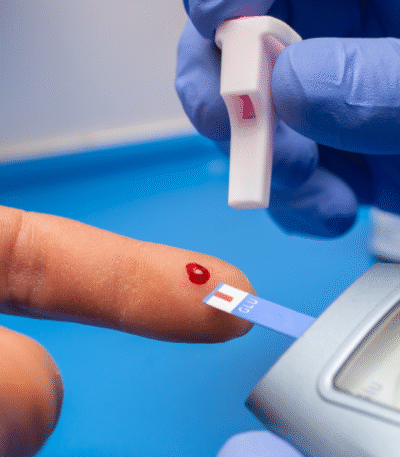Showing all 10 results
Apolipoprotein A1 (APO-A1) – Serum
The apolipoprotein A-1 (apo A-1) blood test is used to evaluate risk factors for individuals with past heart attacks and peripheral vascular diseases.
Apolipoprotein B (APO-B) – Serum
This test is done along with other lipid tests to determine a person’s risk of developing cardiovascular disease.
Creatinine Kinase (CPK) – Serum
Assesses muscle damage and injury levels in the body.
High Sensitive CRP (hs CRP) – Serum
High-sensitivity C-reactive Protein measures low levels of CRP in blood, helping predict the risk of developing Cardiovascular disease.
Homocysteine – Serum
Homocysteine – Serum is a test done to determine the levels of homocysteine in the blood which is a break down product of protein metabolism. It is used to detect vitamin B12 and Folate deficiencies.
Lactate Dehydrogenase (LDH) – Serum
Measures enzyme levels indicating tissue damage or disease presence.
Lipid Profile Test
Measures cholesterol levels and cardiac risk.
Lipoprotein a (Lp-a) – Serum
Lipoprotein a (Lp-a) – Serum test is used to identify an elevated level of lipoprotein (a). This is a possible risk factor in the development of cardiovascular disease (CVD)/ Heart Disease. The test may be used in conjunction with a routine lipid profile to provide additional information about a person’s risk for heart disease
Myoglobulin – Serum
Myoglobin is a protein thats typically found in heart and skeletal muscle tissues. The only time that myoglobin is found in the urine is when injury to a muscle has occurred. In particular, injury to the skeletal muscle results in the release of myoglobin. When detected through a blood test, the presence of myoglobin is clinically significant.
Troponin – I – Serum
Troponin – I is a protein found in heart muscle and released into the blood when there is damage to the heart.


